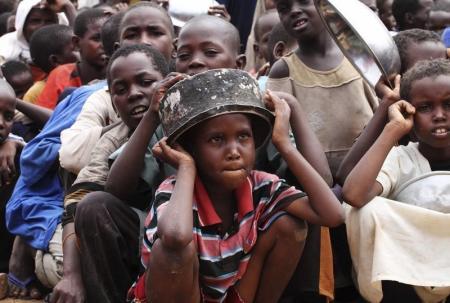Some 11 million children in eastern and southern Africa face hunger, disease and water shortages as a result of the strongest El Niño weather phenomenon in decades, the United Nations children’s fund (UNICEF) said on Tuesday.
Food and water shortages caused by drought and floods are causing malnutrition, which increases children’s vulnerability to killer diseases like malaria, diarrhoea, cholera and dengue fever, it said.
“The consequences could ripple through generations unless affected communities receive support,” UNICEF said in a statement, referring to stunting, which affects children who are getting too few proteins, vitamins and minerals in their food.
Stunted children have poor cognitive development and health, achieve less at school and, as adults, earn less than children who had adequate nutrition, studies show.
El Nino, caused by Pacific Ocean warming, has caused drought in several parts of Africa, including Malawi and Zimbabwe.
The worst affected country is Ethiopia, which has the second largest population in Africa and is suffering its severest drought in 30 years.
More than eight million Ethiopians need food aid, and this number could rise to 15 million by early 2016, the United Nations said.
Some 350,000 Ethiopian children have severe acute malnutrition, UNICEF said, which means they are likely to die without therapeutic feeding.
In Somalia, flash floods have destroyed thousands of makeshift homes and destroyed crops, with further rains expected to increase the number of people in need of life-saving aid above the current 3.2 million.
El Niño is forecast to continue strengthening into early 2016, causing more floods and droughts and fuelling Pacific typhoons and cyclones.
UNICEF’s executive director, Anthony Lake, said he hoped the humanitarian crisis caused by El Nino would focus minds at U.N. talks in France from Nov. 30 to secure a new global deal to slow climate change.
“Its intensity and potential destructiveness should be a wake-up call as world leaders gather in Paris,” Lake said in a statement.
“As they (world leaders) debate an agreement on limiting global warming, they should recall that the future of today’s children and of the planet they will inherit is at stake.”
El Niños are not caused by climate change but scientists believe they are becoming more intense as a result of it.
The poorest regions of the world are among the hardest hit and least able to cope.
(Reuters)














